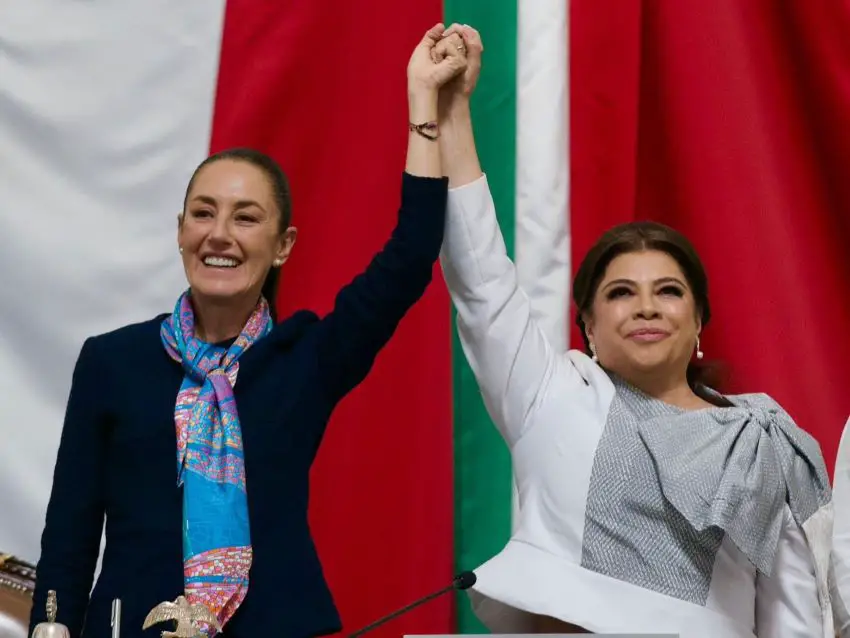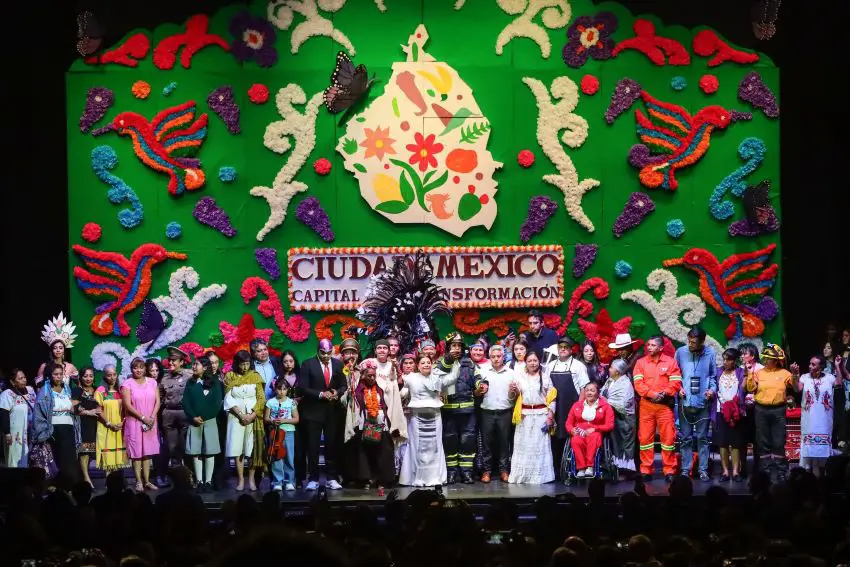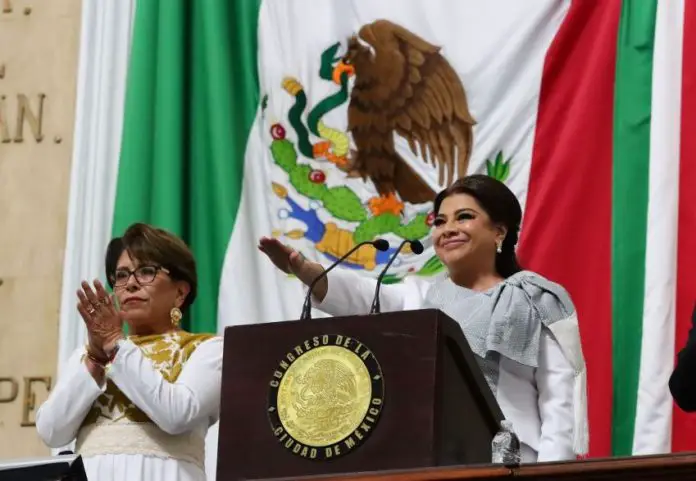Clara Brugada Molina was sworn in as mayor of Mexico City on Saturday, becoming just the second popularly-elected female leader of the national capital.
The 61-year-old former mayor of the Mexico City borough of Iztapalapa will serve a six-year term.
Brugada was elected mayor on a Morena party ticket, attracting almost 52% of the vote in a three-person contest on June 2.
Morena, the party founded by former President Andrés Manuel López Obrador, first came to power in Mexico City after the election of Claudia Sheinbaum as mayor in the 2018 election.
Martí Batres replaced Sheinbaum in June 2023 after she stepped down to pursue the Morena nomination for the presidential election.
Sheinbaum, who became Mexico’s first female president last Tuesday, attended Brugada’s inauguration ceremony at the Mexico City Congress.

In her first speech as mayor, Brugada pledged to work with the president to “build the second story of the transformation” of Mexico.
That was a reference to the so-called “fourth transformation” initiated by López Obrador, who asserted that the change he was bringing to Mexico was on a par with events such as independence from Spain and the Mexican Revolution.
“We will continue honoring the legacy that Andrés Manuel López Obrador has left us,” Brugada said.
The new mayor said that she wouldn’t “fail” or “disappoint” the people of Mexico City.
“I assume the great responsibility of governing for the well-being and prosperity of this city and its residents,” she said.
The mayor also pledged to “govern for everyone” and to “attend to the big challenges of the metropolis, such as water, security, poverty, air [quality], transport and gender equality.”
“… Mexico City voted for a progressive and democratic [political] project, for a leftist project that is openly feminist, anti-classist and anti-racist. It voted for a project that is determined to change social, territorial, economic and gender inequalities,” she said.

Brugada will lead a city of 9.2 million people spread across 16 boroughs. She promised to work with the mayors of all the boroughs on the problems “that affect the citizens” of Mexico’s largest city.
“We’re going to co-govern this city … without worrying about the party origin [of the borough mayors],” she said.
In addition to Sheinbaum, the new mayor will have an ally in Morena party Governor Delfina Gómez of México state, where more than half of greater Mexico City’s 22.5 million residents live.
During the campaign leading up to the June 2 mayoral election, Brugada pledged to work with Sheinbaum and Gómez to solve Mexico City’s water scarcity problem.
She said she would allocate “billions of pesos” to water projects in the capital, where many residents don’t have running water in their homes and depend on deliveries from trucks known as pipas.
The mayor is perhaps best known for her “utopía” community center projects in Iztapalapa, which provide free athletic, recreation and education opportunities in the disadvantaged borough.
During her campaign, she promised to establish 100 additional utopías across the capital’s 15 other boroughs if she succeeded in becoming mayor.
With reports from El Economista, Animal Político and Reforma
